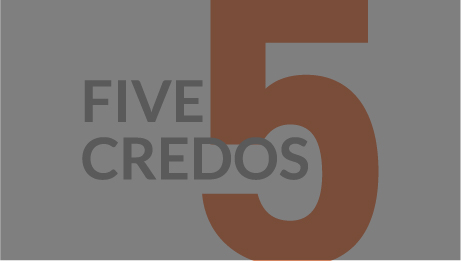
Kyoto Fusioneering (KF) has been developing its technologies in partnership with global fusion developers to accelerate the pace of progress in making fusion energy a reality.
One example of this is the Communication Framework Agreement with the UK Atomic Energy Authority (UKAEA) to develop a partnership that facilitates the exchange of knowledge and skills. As part of this agreement, Dan Lee-Lane and Parth Kotwal were seconded from UKAEA to KF for six months starting in Nov 2024 to enhance their expertise.
We interviewed Dan and Parth to hear their insights and experiences so far, so we invite you to explore their stories in this blog!
What are your roles at UKAEA?
Dan: “Since joining UKAEA in February 2020, I’ve worked as a chemical engineer specialising in the fusion fuel cycle for the STEP (Spherical Tokamak for Energy Production) programme, the UK’s initiative to design and build fusion power plants.
My focus has been on designing the tritium extraction system, which is integral for recovering tritium from the breeder blanket.”
Parth: “I started working at UKAEA in September 2022. I’m part of the technology development group within the fusion technology division. With my background in aerospace, much of my work focuses on mechanical engineering, including thermal and structural analysis and heat transfer. I’ve contributed to the STEP programme, and to projects on test facilities like the HIVE (Heating by Induction to Verify Extremes) facility.”
What brought you to KF?
Dan: “Personally, I had met engineers from KF at different conferences and was really impressed by their expertise. During a workshop in North Carolina, I met Konishi-san, the CEO of KF. Learning about KF’s work with liquid metal systems, I thought, ‘Wow, this company really knows what they’re doing.’
When the secondment opportunity arose, I knew it would be an amazing chance for both professional and personal growth. I applied and was thrilled to be selected.”
Parth: “The opportunity to work abroad, especially in Japan, which has a different culture from the UK, came at a good time in my career.
Also, the chance to engage with advanced experimental technologies and collaborate with KF’s talented team was too good for me to pass up. It really aligned nicely with my professional development goals.”
Dan: “We hadn’t worked together before, but when I heard Parth would also be seconded to KF, I sent him a message suggesting we meet for a coffee and chat about the secondment before travelling.”
What are the highlights of your experience at KF so far?
Dan: “The hands-on approach at KF has been interesting for me. Working with UNITY-1, KF’s demonstration facility for the fusion thermal cycle system, has shown me practical aspects of operating liquid metal systems and exposed me to new areas like magnetohydrodynamics. This experience complements my theoretical work back at UKAEA.”
Parth: “I’ve learned a great deal, including using different tools for computational analysis and computer-aided design (CAD) to those that I have used previously. Observing the operational procedures and commissioning steps for testing facilities like UNITY-1 has given me a deeper appreciation of how to translate theoretical designs into practical and efficient systems. By becoming more familiar with multiple tools and approaches, I have the opportunity to develop further. “
How do you plan to build on your experiences here?
Dan: “I think the fusion industry has tended to rely on theory and predictions. Practical experimental work, like what KF is doing, is incredibly valuable for actual progress. Facilities like UNITY-1, which can be used in collaboration with other companies, represent a significant step forward for the entire fusion community. From my work here, I’ve gained insights into building experimental rigs, including understanding critical factors like magnet spacing.
On the other hand, UKAEA’s expertise in designing integrated systems can contribute to KF’s advancements as well, particularly in technologies like test blanket modules.”
Parth: “Our technical backgrounds have been crucial in adapting to challenges and applying what we’ve learned. Observing the operational processes and the launch of facilities like UNITY-1 has been particularly insightful. It’s fascinating to see how subsystems can be utilised even before an entire facility is completed.
This approach offers valuable lessons in efficiency that we can implement back at UKAEA. As Dan mentioned, seeing theory translated into practice has been one of the most rewarding parts of this experience.”
Dan: “I’d also add that working in Japan, a culture different from the UK, has been an invaluable part of this experience.”

How has your life been in Japan so far?
Dan: “Living in Kyoto has been an incredible experience. The city’s blend of traditional and modern culture is fascinating.
I’ve particularly enjoyed exploring temples, hiking in the nearby mountains and then looking down at the city of Kyoto at sunset. The food is amazing too and my favourite is yakisoba, Japanese stir-fried noodles. I’m looking forward to visiting other places in Japan like Hokkaido!”
Parth: “Japan’s efficiency, attention to detail, and politeness are qualities I truly admire.
Exploring Ramen Street at Kyoto Station and discovering the unique regional differences in ramen has been a personal highlight. I realised that the taste differs depending on where in Japan the ramen comes from. I feel like ramen from the colder climates in the north is rich and has fattier broth than the warmer areas. Overall, immersing myself in such a different culture has been enriching and rewarding.”
Dan: “We want to thank KF and everyone here for being so hospitable; it’s made settling in so much easier.”

Would you support the continuation of programs like this?
Dan: “Absolutely. Fusion is a global challenge that requires diverse expertise and collaboration. Programmes like this would allow us to share knowledge and innovate together. While challenges like intellectual property and export controls exist, the benefits far outweigh the drawbacks.”
Parth: “I completely agree. There are always opportunities for people to learn because of how many different things are being explored. For example, research into different materials and different manufacturing techniques are all happening.
You can certainly get information from international conferences by having a 10-minute talk or something, but through collaborations like this, we are actually coming here and working together, which means that there are opportunities to learn from other people’s expertise they have built up over their professional lives. I think this is really valuable.
So, by working across borders, we gain both technical knowledge as well as unique perspectives that advance efforts in fusion globally!”
Dan: “I hope there will be more collaborations between fusion developers like this programme between KF and UKAEA since we are pursuing the same goal – making fusion a reality.
—
KF is truly honored and excited to welcome Dan and Parth to Japan and to our team. Their time here has been a wonderful example of how knowledge-sharing and cultural exchange foster both individual growth and enhance our collective drive for technological innovation.
It is a privilege for us to be part of this collaboration, and we eagerly look forward to continuing our partnership as we work together toward making fusion energy a reality.
Subscribe to Our Newsletter
Follow Us on X, LinkedIn, Facebook




